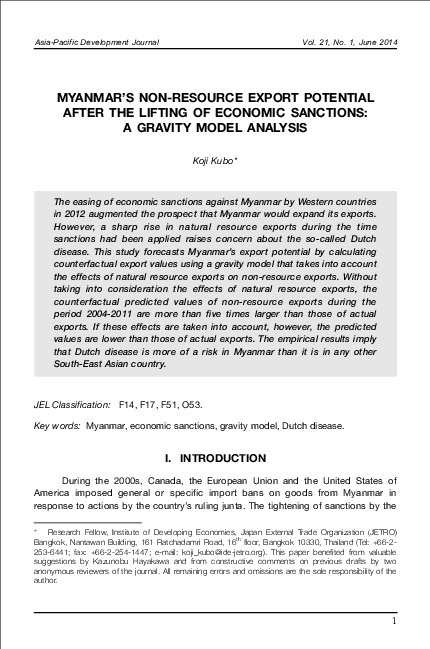The Uneven Application Of Sanctions: A Critical Analysis Of Britain And Australia's Myanmar Policy

Table of Contents
Britain's Myanmar Sanctions Regime: A Targeted Approach?
Britain's Myanmar sanctions regime is ostensibly targeted, aiming to pressure the military junta through focused measures against key individuals and entities.
Strengths of the British Approach:
- The UK has imposed targeted financial sanctions, including asset freezes and travel bans, on numerous senior military officials, directly involved in the coup and subsequent human rights abuses.
- These sanctions aim to disrupt the military's access to crucial financial resources and international networks. Successful instances include the freezing of assets linked to the Myanmar military's procurement of weapons and equipment.
- Britain actively collaborates with international partners, including the EU and the US, to coordinate sanctions implementation and enhance their effectiveness. This collaborative approach aims to maximize pressure on the junta.
- Specific sanctions imposed include:
- Asset freezes on individuals and entities linked to the military.
- Travel bans preventing designated individuals from entering the UK.
- Restrictions on trade in certain goods and services.
Weaknesses of the British Approach:
- Despite the targeted nature, loopholes exist within the sanctions regime. The complexity of the military's business dealings makes it difficult to track and freeze all assets effectively.
- The military’s extensive network of front companies and proxies obscures financial flows, making it challenging to enforce sanctions fully. This necessitates improved intelligence gathering and international cooperation.
- Critics argue that the sanctions aren't stringent enough to significantly impact the military's power or finances. There are calls for broader, more encompassing sanctions.
- Shortcomings and potential unintended consequences include:
- Limited impact on the military's revenue streams due to its access to alternative funding sources.
- Potential negative repercussions on the already vulnerable civilian population due to economic hardship.
- Lack of sufficient mechanisms to monitor and enforce sanctions effectively.
Australia's Myanmar Sanctions: A Comparative Analysis
Australia has also implemented sanctions against Myanmar, but their approach differs in several key aspects when compared to Britain's.
Similarities and Differences with Britain's Approach:
- Both countries have targeted sanctions against key individuals within the military and associated businesses. However, the specific individuals and entities targeted differ slightly.
- The scope of sanctions varies. While both employ asset freezes and travel bans, the extent of trade restrictions may differ.
- Collaboration between Australia and Britain on Myanmar sanctions exists within the framework of broader international partnerships, particularly with the EU and the US.
- Specific differences include:
- Variations in the specific individuals and entities sanctioned.
- Different levels of engagement in international collaborative efforts.
- Differing approaches to targeting specific sectors of the Myanmar economy.
Effectiveness and Limitations of Australian Sanctions:
- The impact of Australian sanctions on the Myanmar military's operations and financial capabilities has been limited.
- The sanctions have not significantly deterred human rights abuses or altered the political trajectory in Myanmar.
- Limitations include the challenges in effectively enforcing sanctions against a sophisticated network of military-linked businesses and the risk of unintended negative impacts on the civilian population.
- Effectiveness and limitations summarized:
- Limited impact on military operations and finances.
- Insufficient deterrence against human rights violations.
- Challenges in enforcement due to complex financial networks.
- Potential for negative humanitarian consequences.
The Role of International Cooperation in Myanmar Sanctions
Effective Myanmar sanctions require strong international collaboration.
Collaboration and Coordination:
Britain and Australia, along with other key international actors like the EU and the UN, have engaged in some level of coordination on sanctions. This involves sharing information, coordinating enforcement strategies, and working toward a unified approach. However, this cooperation remains uneven.
Challenges and Gaps in International Cooperation:
Inconsistencies in the application of sanctions across different countries weaken their overall impact. Lack of comprehensive data sharing, differing legal frameworks, and varying political priorities all hinder effective cooperation.
Potential for Enhanced Cooperation:
Strengthening international cooperation is crucial. This could involve establishing a more robust information-sharing mechanism, harmonizing sanctions regulations, and creating a unified sanctions enforcement body. A greater focus on multilateral diplomacy can also improve effectiveness.
- Key international players: EU, US, UN, ASEAN.
- Levels of cooperation: Varying degrees of collaboration, but significant gaps remain.
- Areas for improvement: Enhanced information sharing, harmonization of sanctions, unified enforcement mechanisms.
Assessing the Overall Impact of Sanctions on the Situation in Myanmar
The overall impact of sanctions on Myanmar requires a multifaceted assessment.
Humanitarian Impact:
Sanctions have unintended consequences for the civilian population, exacerbating existing economic hardship and humanitarian needs. Addressing this requires careful consideration of targeted sanctions and humanitarian exemptions.
Political Impact:
Sanctions have not significantly altered the political dynamics in Myanmar. The military junta remains firmly in power. A broader strategy is required, including diplomatic pressure and support for pro-democracy movements.
Economic Impact:
Sanctions have had a limited impact on the Myanmar economy, which is largely dependent on informal and opaque channels. A more targeted approach that limits the military's access to resources while minimizing harm to civilians is needed.
- Overall impact summary:
- Limited impact on military power and political landscape.
- Negative consequences for the civilian population.
- Need for a more nuanced and targeted strategy.
Conclusion: Re-evaluating Britain and Australia's Myanmar Sanctions Strategies
This analysis reveals the uneven application of "Myanmar sanctions" by Britain and Australia, highlighting both similarities and critical differences in their approaches. While targeted sanctions hold potential, their limitations are evident due to the complex nature of the military's operations and the need for robust international cooperation. To enhance the efficacy of "Myanmar sanctions" and promote accountability for human rights abuses, we need stronger coordination between nations, a more sophisticated understanding of the military's financial networks, and a greater focus on minimizing the negative consequences for the civilian population. We urge readers to advocate for strengthening Myanmar sanctions through greater international collaboration and more targeted approaches to achieve a just and peaceful resolution in Myanmar. Improving the efficacy of Myanmar sanctions is paramount to holding the perpetrators accountable and supporting a democratic transition.

Featured Posts
-
 Nba Draft Lottery 2025 Predicting The Winner Of The Cooper Flagg Lottery
May 13, 2025
Nba Draft Lottery 2025 Predicting The Winner Of The Cooper Flagg Lottery
May 13, 2025 -
 Are La Landlords Price Gouging After The Fires A Selling Sunset Perspective
May 13, 2025
Are La Landlords Price Gouging After The Fires A Selling Sunset Perspective
May 13, 2025 -
 Son Receives Strength From Imprisoned Fathers Message
May 13, 2025
Son Receives Strength From Imprisoned Fathers Message
May 13, 2025 -
 2024 Protest Song The Story Behind Hit The Road Drax
May 13, 2025
2024 Protest Song The Story Behind Hit The Road Drax
May 13, 2025 -
 The Making Of Olympus Has Fallen A Detailed Account
May 13, 2025
The Making Of Olympus Has Fallen A Detailed Account
May 13, 2025
